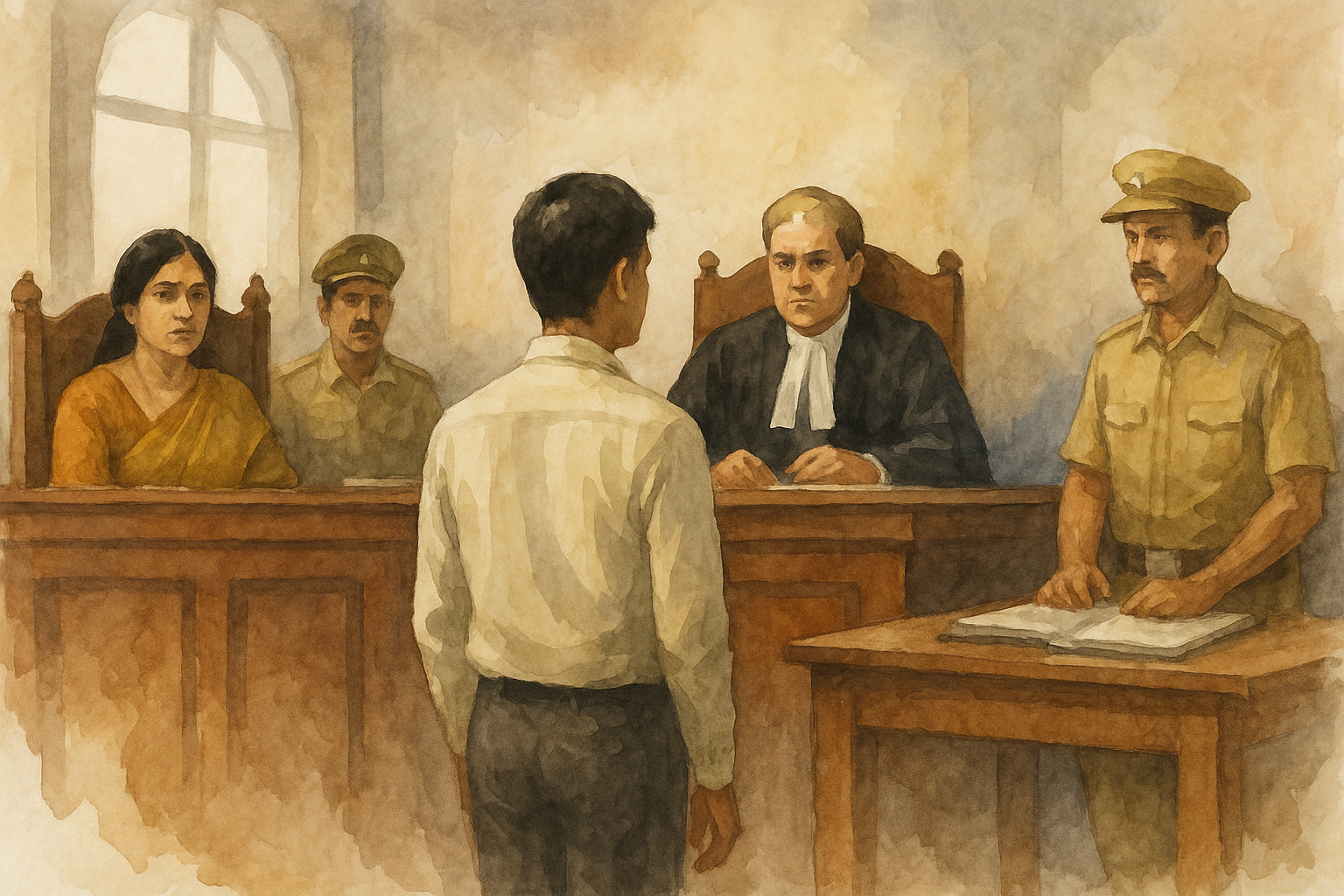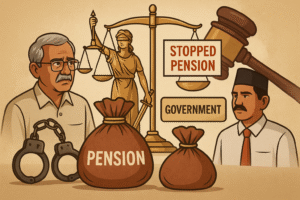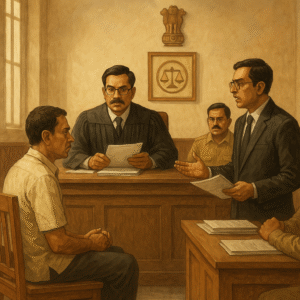Simplified Explanation of the Judgment
In Civil Writ Jurisdiction Case No. 3653 of 2020, decided on 28 June 2021, the Patna High Court dealt with an unusual claim for compassionate appointment based on a civil death declaration of a missing government employee.
The judgment was delivered by Hon’ble Mr. Justice Chakradhari Sharan Singh through virtual hearing during the COVID-19 pandemic.
Background of the Case
The petitioner challenged the decision of the District Compassionate Appointment Committee, Gopalganj, dated 17 October 2019 (Memo No. 877 dated 20 December 2019), which rejected his claim for appointment on compassionate grounds.
The case concerned one Kamalawati Devi, who worked as a Lady Health Visitor (LHV) at a Primary Health Centre in Gopalganj district under the Civil Surgeon. The petitioner claimed that Kamalawati Devi was his adoptive mother and that she had gone missing in January 2001 under mysterious circumstances.
After seven years of her disappearance, the petitioner filed Succession Case No. 27 of 2008 before the Sub-Judge-I, Saran, Chapra. In 2012, the court issued a succession certificate, declaring the civil death of Kamalawati Devi. Based on this declaration, the petitioner received her posthumous legal dues and then applied for compassionate appointment.
Chronology of Events
- Kamalawati Devi disappeared in January 2001.
- No immediate report was lodged about her missing status until 2008, when a local health officer reported her disappearance.
- The petitioner filed the succession case in 2008, and civil death was declared in 2013.
- His first compassionate appointment application was rejected by the Committee in 2016.
- The High Court in CWJC No. 4100 of 2017 remanded the case for reconsideration, directing the authority to examine the succession order and Circle Officer’s report.
- The Committee reconsidered the matter in October 2019 but again rejected his claim.
Grounds of Rejection by the Committee
The Committee found several inconsistencies and legal infirmities in the petitioner’s claim:
- Though the petitioner alleged that he was adopted by Kamalawati Devi in 1987 at age three, all his educational certificates listed his father’s name as Chhotan Prasad Srivastava, not Kamalawati Devi.
- The petitioner’s residential address differed from that of Kamalawati Devi.
- He could not produce any documentary proof of adoption or the alleged divorce between Kamalawati Devi and her husband.
- The adoption claim was raised only after the civil death declaration, suggesting an afterthought.
Based on these facts, the Committee concluded that the petitioner failed to establish a legitimate claim for compassionate appointment.
Court’s Analysis and Reasoning
The Court examined the petitioner’s arguments and found multiple weaknesses in his case:
- Lack of Evidence of Adoption:
The petitioner did not produce a valid adoption deed or any document to prove that Kamalawati Devi legally adopted him in 1987. - Delay and Inaction:
If Kamalawati Devi went missing in 2001, there was no explanation for the seven-year delay in reporting her disappearance or approaching the authorities. - Civil Death and Compassionate Appointment:
The Court emphasized that compassionate appointment is an emergency relief, intended to help families who face immediate financial hardship due to the sudden death of a breadwinner.
A claim arising more than a decade after disappearance defeats this purpose. - Purpose of Compassionate Appointment:
Relying on the Supreme Court judgment in Umesh Kumar Nagpal v. State of Haryana [(1994) 4 SCC 138; (1997) 8 SCC 85]*, the Court reiterated that compassionate appointment is not an alternate mode of employment but a humanitarian measure for immediate relief. - Absence of Financial Crisis:
Since the petitioner had already received the legal dues of Kamalawati Devi after the succession order, he could not claim ongoing financial distress.
Court’s Decision
After considering all factors, the Patna High Court held that the case did not warrant the exercise of its discretionary writ jurisdiction.
It found no merit in the petitioner’s demand for compassionate appointment and dismissed the writ petition.
The Court observed:
“The object of compassionate appointment is to provide succor to the family which has been suddenly plunged into penury due to the untimely death of its sole breadwinner. It cannot be treated as an alternative mode of recruitment.”
Hence, the rejection of the petitioner’s claim by the District Compassionate Appointment Committee was upheld.
Significance or Implication of the Judgment
This decision underscores several key legal principles regarding compassionate appointment in Bihar:
- Civil death declaration does not automatically confer entitlement to compassionate appointment.
- Delay defeats purpose: If many years pass after the death or disappearance, the rationale for emergency relief disappears.
- Adoption claims must be legally proven through proper documentation.
- Compassionate appointment is not a right, but a conditional benefit based on dependency and immediacy of need.
- Administrative discretion must be guided by fairness, not emotion or sympathy.
The judgment serves as a cautionary example for claimants attempting to seek employment benefits long after an employee’s death or disappearance.
Legal Issues Decided and the Court’s Findings
- Can an adopted child claim compassionate appointment after a civil death declaration?
- Held: Only if the adoption is legally valid and dependency clearly established.
- Does long delay in applying defeat the claim?
- Held: Yes. The objective of immediate relief is lost.
- Does succession certificate establish eligibility for employment?
- Held: No. It only determines succession to financial dues, not job entitlement.
- Is compassionate appointment a right?
- Held: No. It is a discretionary humanitarian measure, not a statutory right.
Judgments Cited by the Court
- Umesh Kumar Nagpal v. State of Haryana, (1997) 8 SCC 85
- State of Haryana v. Rani Devi, (1996) 5 SCC 308
Case Title
Atul Kumar Srivastava v. State of Bihar & Ors.
Case Number
Civil Writ Jurisdiction Case No. 3653 of 2020
Citation(s)
2021(3) PLJR 8
Coram and Names of Judges
Hon’ble Mr. Justice Chakradhari Sharan Singh
Names of Advocates and who they appeared for
- For the Petitioner: Mr. Jitendra Prasad Singh, Advocate
- For the Respondents: Mr. Ajay Behari Sinha, Government Advocate (GA-8)
Link to Judgment
MTUjMzY1MyMyMDIwIzEjTg==-nti6pO7ALC8=
If you found this explanation helpful and wish to stay informed about how legal developments may affect your rights in Bihar, you may consider following Samvida Law Associates for more updates.








